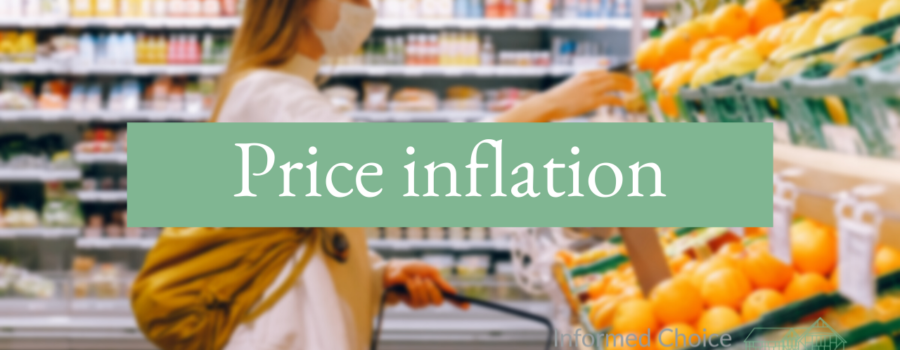The cost of living continues to rise, with the latest official figures showing price inflation up 5.5%.
The Consumer Prices Index (CPI) measure of price inflation for the twelve months to January was 5.5%, up from 5.4% a month earlier.
Prices are being driven higher by more expensive clothing and footwear, according to the Office for National Statistics (ONS).
The cost of energy, fuel and food is also continuing to rise.
According to the Bank of England, CPI price inflation is forecast to rise above 7% this year.
Grant Fitzner, chief economist at the ONS, said:
Clothing and footwear pushed inflation up this month and although there were still the traditional price drops, it was the smallest January fall since 1990, with fewer sales than last year.
Within the latest price inflation figures, there are signs of significantly higher prices for some goods.
Pasta rose in price 15%, and margarine was up 37%.
Overall, the price for food and non-alcoholic drinks rose 4.3% compared to a year earlier.
Electricity prices rose 19% in a year, and gas prices rose 28%.
When the Ofgem energy price cap is adjusted in April, gas and electricity prices will rise further, with the average household energy bill in England, Scotland, and Wales to rise £693 a year.
Other pressures faced by households later this year include increasing National Insurance rates and council tax this April.
As wholesale prices and costs continue to rise, it seems likely that price inflation will exceed 6% for the year to February, when the next set of figures are published next month.
The Bank of England targets CPI inflation at 2% and has started what is predicted to be a series of interest rate hikes to help bring soaring prices back under control.
Higher interest rates reduce the volume of money in the economy and exert some downwards pressure on prices.
However, with many factors contributing to higher prices coming from external sources, including the wholesale price of gas, some commentators fear that higher interest rates will have little effect on domestic prices.
Responding to the latest price inflation figures, Chancellor Rishi Sunak said:
We recently stepped in to provide millions of households with up to £350 to help with rising energy bills.
We’re also helping people on the lowest incomes keep more of what they earn by cutting the Universal Credit taper rate, and freezing alcohol and fuel duties to keep costs down.

